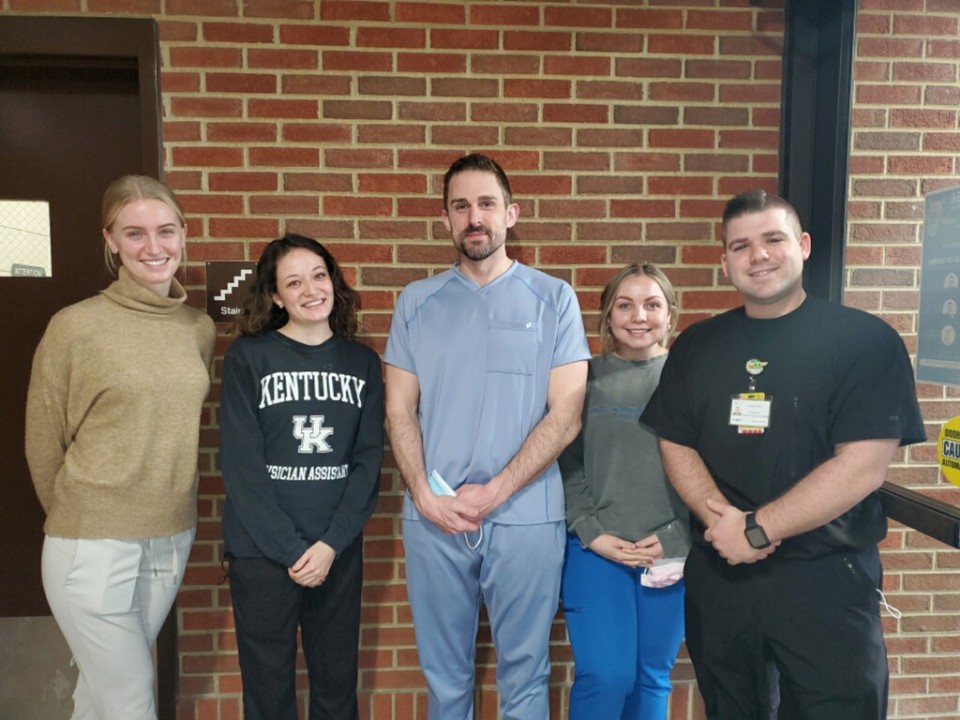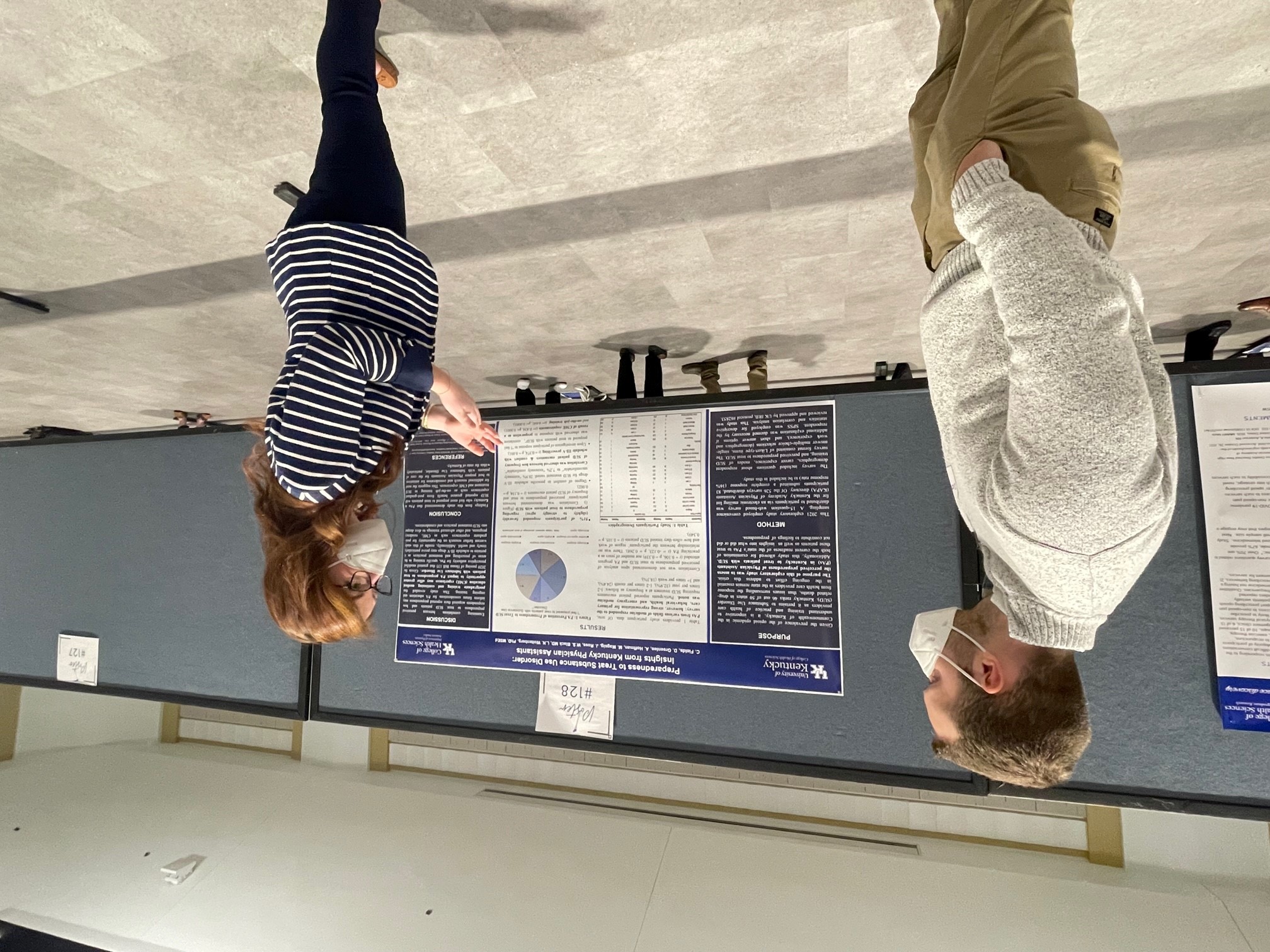Students, Faculty Present at 4th Annual SURE Event
Mar 24, 2022
By Ryan Clark
CHS Communications Director
Congratulations go out to all of our students and faculty who presented at the Fourth Annual SURE Event, or Substance Use Research Event, earlier this month at the Gatton Student Center.
UK Physician Assistant Studies students presented a poster entitled “Preparedness to Treat Substance Use Disorder: Insights from Kentucky Physician Assistants.” The team included: Class of 2022 students Courtney Fields, Drew Greenlee, Annaka Hoffman, Micaela Magsig Benton, Jonathan Ross; and Faculty mentors Scott Black, MD, and Leslie Woltenberg, PhD.

This study utilized an anonymous survey to evaluate the perceived preparedness of Physician Assistant professionals currently practicing in the state of Kentucky in regards to preparedness to treat Substance Use Disorder (SUD).
About 25 percent of participants reported they “moderately agree” to feeling prepared to treat patients with SUD. Correlations were observed with self-reported perception of preparedness with respect to: frequency of encounters PAs experienced with SUD patients, on-the-job training specific to SUD treatment and completion of relevant continuing medical education (CME) credits.
Implications for the future may include considerations for masters-level trainees (i.e. seminar and/or rotation experiences) and post-graduate opportunities (i.e. CME and residencies).
“We are so proud of this remarkable student research team and their representation at the SURE conference,” Woltenberg said. “This team conducted meaningful research relevant to the needs of our state and they exemplify the transformative leadership component of our mission.”
“Substance Use Disorder is a disease that affects not just patients but entire families,” said student Drew Greenlee. “When providers feel more prepared to treat SUD in their patients, they become capable of sparking positive changes for Kentucky families that can pay exponential dividends across generations. One stone can cause a ripple that reaches all shores, and PAs in Kentucky are needed now more than ever to spark small changes that can lead to large rewards among those with addiction issues in this state.”
He said the role of PA is constantly evolving, “with PAs poised to care for patients suffering from all kinds of illness, including Substance Use Disorder. Patients with addiction issues often need empathy and compassion from their healthcare providers,” he continued. “With the mission of the UKPA program to provide Kentucky with ‘caring and compassionate’ PAs, what better way to help facilitate that mission than this research project, which aimed to take a look into how best we can educate and prepare PAs to care for patients with addiction issues.”
Another student, Annaka Hoffman, agreed.
“Understanding clinical research is being comfortable accessing, interpreting, and applying (evidence-based medicine) to patient care,” she said. “It is important as a provider to access the literature often to stay up to date on current and best practices; research rare, newly understood, or evolving diagnoses/treatments; and provide the most accessible, efficient, and affordable care to all patients. Having experience with clinical research can also create opportunities as a provider to participate or lead research projects in practice, contributing to and improving the larger pool of medical literature.”

“I believe our timing with this project was critical as PAs gain more autonomy in our state,” Courtney Fields said. “I am proud to be a part of this team and add this important knowledge and awareness about treating SUD.”
But the faculty got into the act, too.
Karen Clancy, Ph.D., Cheryl Vanderford, MSPAS, PA-C, and Stacey Slone, MS, presented a research poster sponsored by the University of Kentucky’s Substance Use Disorder Research Priority Area.
The poster, entitled, “Opioid Prescribing Behaviors During the COVID-19 Pandemic,” gathered data utilizing a 29-item survey conducted anonymously via Qualtrics.
The electronic survey for opioid prescribing providers consisted of inquiries related to participant demographics, patient encounters and workload prior to and since the COVID-19 pandemic, confidence level with difficult conversations, and inquiries related to factors influencing opioid prescribing patterns.
The findings reveal that participants perceived the COVID-19 pandemic influenced access to specific non-opioid pain management services. Access to such services also influenced some participants’ opioid prescribing behaviors.
Next steps include further research into strategic, novel infrastructure enhancing accessibility to such services.
For more information on the SURE Conference, click here.